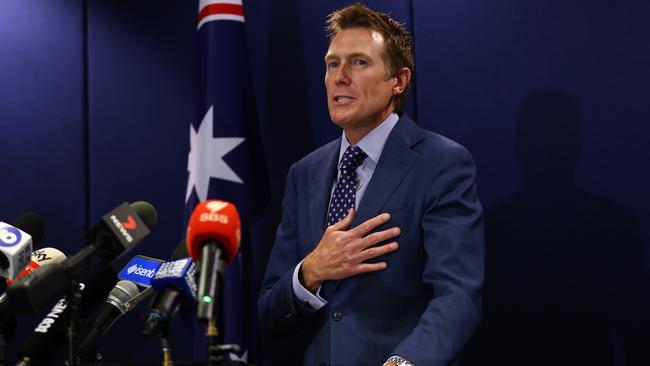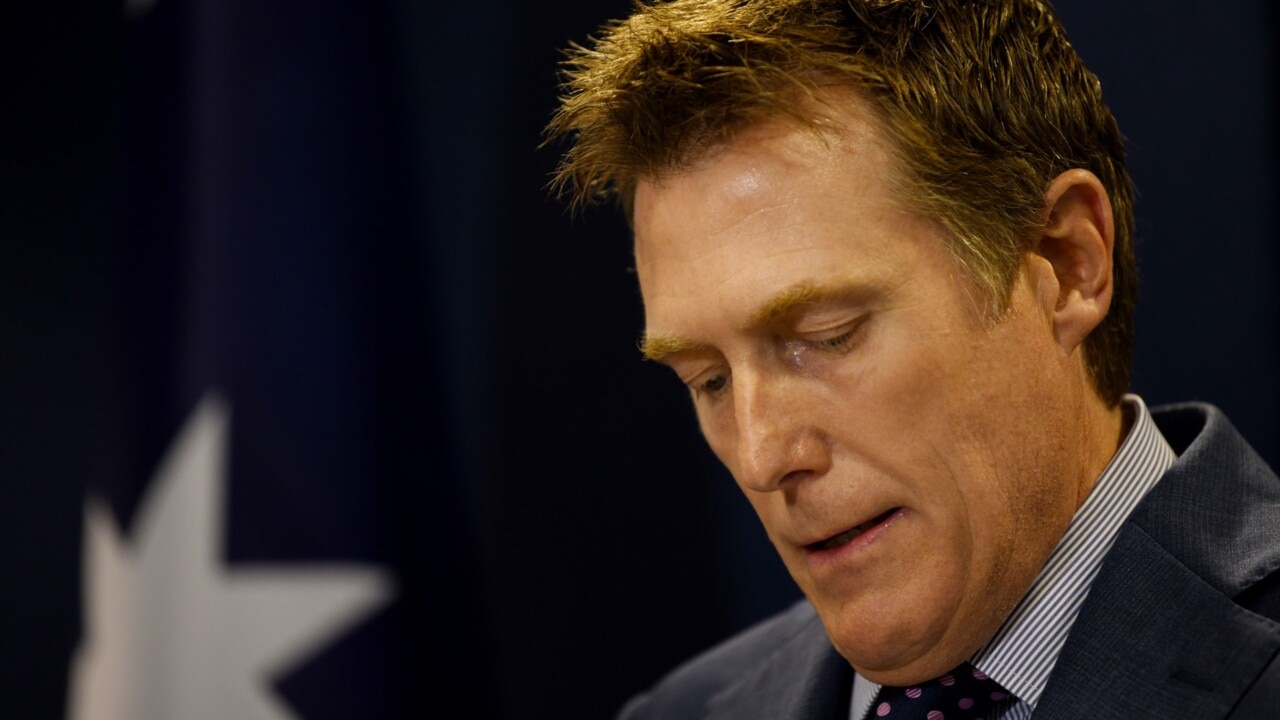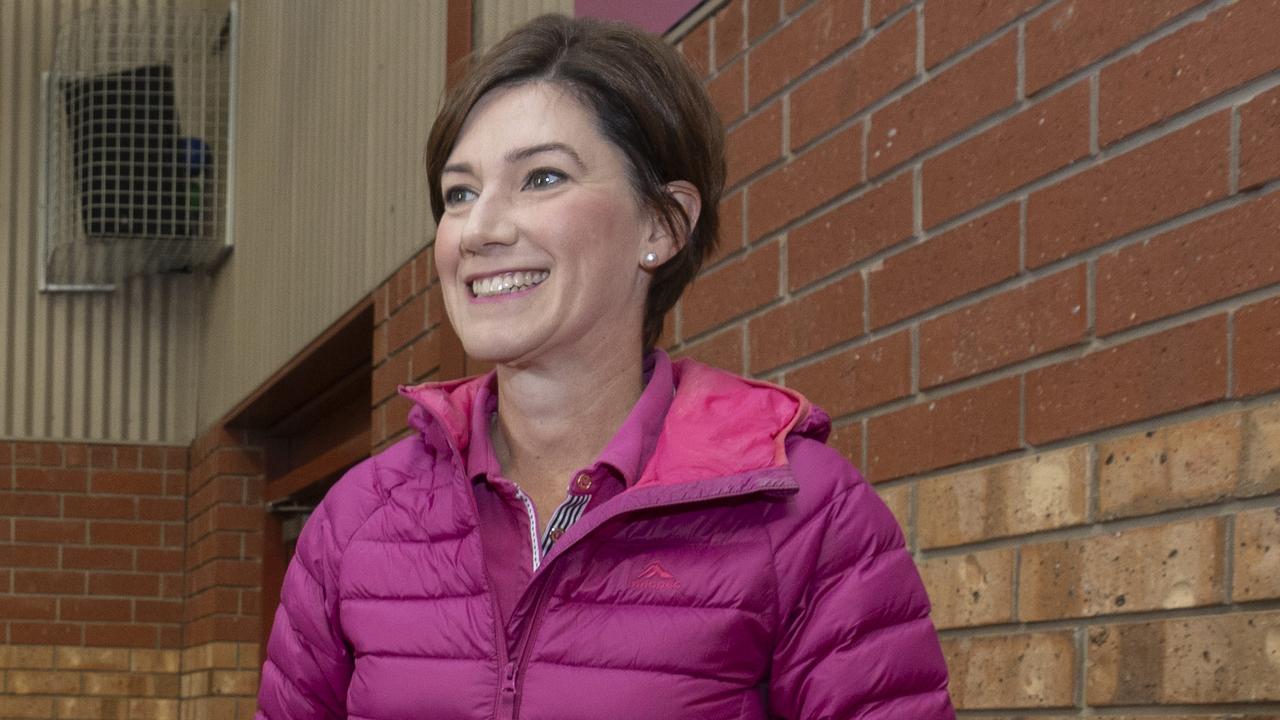Samantha Maiden: Why we may never get answers about the suicide of Kate, the woman who accused Christian Porter of rape
SA Police are investigating the tragic suicide of Kate, who had accused Christian Porter of rape – but what they reveal may depend on one man, writes Samantha Maiden.

Opinion
Don't miss out on the headlines from Opinion. Followed categories will be added to My News.
For many months now, the South Australian police have been quietly and diligently working away on a coronial investigation.
They’ve spoken to more than 100 people according to those that have had contact with the investigating officer.
They include an Adelaide woman’s friends, family and colleagues. They’ve taken dozens of statements, although the police won’t provide details of how many.
It’s been an extremely thorough investigation by all accounts.
But it remains unclear how much of this investigation will ever see the light of the day.
The investigation SAPOL has conducted is into the death of an Adelaide woman, often referred to as “Kate”, who accused the former Attorney-General of raping her at a debating conference in Sydney when they were teenagers in 1988. Christian Porter denies the claim.
Her story was one of the reasons why thousands of women took to the streets in protest against sexual assault in March, their rage erupting in a way that has shocked Australia.
It was an uprising that tells you something about generations of women’s silent rage about unspoken crime against them.
But it doesn’t answer the question of what happened to Kate.
The SA police investigation is not an inquiry into the Adelaide woman’s rape allegation, as much as the woman’s friends and supporters would like it to investigate that.

In the first instance, it is an investigation into the woman’s tragic death in Adelaide in 2020.
Because the woman died by suicide shortly after being released from a Melbourne psychiatric facility, there’s a strong argument that the coroner should examine if there are any lessons to learn from that.
She was left isolated at home during Covid and her quarantine from returning from Victoria. It was in this context that she rang the NSW police just 24 hours before she died and told them she didn’t want to pursue an investigation at that time.
Mr Porter strenuously denies the allegation, and many will remember, waged a defamation action against the ABC after it was first to publish the allegation, albeit without naming him.
Ultimately, he outed himself as the target of the allegation after he said he was given little choice because so many anonymous critics on social media were doing it already.
“Had the accusation ever been put to me before they were printed, I would have at least been able to say the only thing that I can say – likely the only thing that I’m ever going to be able to say, and it’s the truth – and that is that nothing in the allegations that have been printed ever happened,’’ Mr Porter said.
It was during that press conference that the following exchange occurred about how he could ever prove his innocence with a dead accuser and no prospect of a court case, or even a police investigation, after NSW closed the case.
Reporter: “You can’t disprove it, can you? That’s the problem?”
Mr Porter: “Of course I can’t. Of course I can’t.
“But I can say categorically that what has been put in various forms and allegations simply did not happen,’’ Mr Porter said.
The case raises many legitimate questions about how to handle historic allegations of this nature, defamation law and what Mr Porter has described as online lynch mobs.
The tragedy for all concerned is that there will always be people who believe Mr Porter has questions to answer about that night.
And there are also many who believe he has been the subject of a grave and life-altering injustice, fuelled by the ungoverned air space of social media. Ultimately, Mr Porter discontinued his defamation case. The ABC left the story up but added an editorial note to reflect that both parties accepted that some people misinterpreted the article as an accusation of guilt.

The note also said it did “not contend” that “the serious accusations could be substantiated to the applicable legal standard – criminal or civil”.
But the SAPOL investigation is not looking into that. It can’t. The accuser is no longer alive.
The question that arises, however, is: How much information from the SA police investigation will ever see the light of day? It may well be information, if it was in the public domain, that supports Mr Porter’s account.
Right now, we just don’t know. What we do know is that a former boyfriend of the Adelaide woman believes that he had relevant discussions with her in 1989, the year after the alleged incident, and is calling for an independent investigation into the matter.
Macquarie Group managing director James Hooke has also offered to co-operate with any coronial inquiry.
“I continue to be devastated by the untimely death of my very dear friend, and I am enormously concerned for the privacy and dignity of her family,’’ Mr Hooke said in March.
“I am also concerned for the wellbeing of Christian Porter. I have known all of them for approximately 30 years. We all find ourselves at a very upsetting time.
“Mine is just one set of recollections, and I am aware of the fallibility of human memory, however unintentional.
“That said, I have what I consider to be clear recollections of relevant discussions I had with her over the years from mid-1988 until her death.
“I also have what I consider to be clear recollections of relevant discussions I had with Christian Porter from April 1992 in Perth and through the mid-1990s.”
How much the public gets to learn about what Mr Hooke does or doesn’t know, is now a matter for the SA coroner.
samantha.maiden@news.com.au





